[vc_row][vc_column][/vc_column][/vc_row][vc_row][vc_column][vc_column_text css=”.vc_custom_1572904294631{margin-bottom: 0px !important;}”]
Winter is fast approaching, and for some of us we couldn’t be happier. However, if you’re like me, it’s a less than exciting time. Here in Newfoundland, winter lasts about half the year, so we need to put in some extra effort to try to enjoy this tidbit nipply season. As a Canadian doula, we have the extra challenge of navigating birth work through this unpredictable time of year. Here are my suggestions to help you get through these cold months:
[/vc_column_text][mk_padding_divider][/vc_column][/vc_row][vc_row][vc_column][vc_column_text css=”.vc_custom_1572904448393{margin-bottom: 0px !important;}”]Number 1:
Have good winter tires – we can be called to a birth or scheduled for a postpartum shift anytime, so it’s important to be confident on the road. If you’re able to reschedule your shifts if the weather is bad, all the better, but even on a nice day you might be facing some less than optimal road conditions. Personally, I hate spending money on my car, but good tires are an investment in my safety and the safety of everyone else on the road too, and a bit of piece of mind.
Number 2:
Make sure your childcare will still stand if there’s a snow day at school or if the road conditions are really bad – will your sitter or family still be able to get to you or take your child if there is no school? Make sure you have backup for your back up if circumstances change.
Number 3:
Have an emergency pack ready in your car – are you prepared if you get stuck somewhere and can’t get home? Have some extra toiletries and clothes packed incase you need to stay with friends or sleep in the waiting room of the hospital before you get home. I know at the end of a long birth or shift it can be very tempting to just push through and try to get home, but sometimes its better to stay where you are until the roads clear up. Have things packed so you’re ready if you need to wait to get home.
Number 4:
Get outside as much as possible – it can be very tempting to ignore the existence of snow and slush and cold. But for our mental health, it important for us to get for fresh air and some vitamin D. You can try snowshoeing or skiing. Or maybe it just a matter of standing outside your door for a couple seconds in the mornings to start your day.
Number 5:
Pack layers in your go bag – the temperature of a hospital room or someone else’s house in unpredictable at the best of times, but especially during the winter. Pack lots of layers so that you can stay comfortable and your clients don’t need to accommodate you.
Number 6:
Give yourself lots of time for travel – maybe you need to adjust your contract to allow for extra travel time during the winter months. If you live close to the hospital, or if your catchment area for your clients is pretty small, it might not make a difference to your travel time, but make sure you either leave earlier than you usually would or make sure clients know you might take a bit longer, weather depending.
Number 7:
Have some soul warming self care practices – birth work is hard work, both physically and mentally, and self care may look different during the winter months. Make sure you have some ways to fill your cup and keep your heart warm. Maybe you like having a hot bath, or enjoying a cup of tea or really good coffee or stretching your body and mind with a regular yoga practice. Take care or yourself so you can better take care of your clients and your family.
Number 8:
Stay active – We need to take care of our bodies so that we don’t risk injury when we are working with families, be it at a birth or during postpartum shifts. It’s easy to increase how much time we spend sitting when its not so nice out, so make sure you’re doing things to keep your body moving. Yoga, swimming, snowshoeing, skiing, walking on an indoor track, stacking wood are all great ways to keep your body active when its tempting to just stay inside and cozy under a blanket for the next 6 months.
Number 9:
Eat as healthy as possible – fresh fruit and veggies are hard to come by in the middle of winter. To care for our bodies, we must also be conscious of our nutrition. I’m guilty of becoming lazy when it comes to cooking healthy meals. Frozen fruit and veggies are a great way to keep the good food coming without spending a fortune to buy out of season produce. Maybe make some granola bars or trail mix to bring with you to births and shifts so that you’re not tempted to buy junk to keep your body full of fuel.
Number 10:
Learn to embrace it a little – it took me a long time, but eventually I came to the realization that I don’t want to be miserable for half of my life, so I figured out how to, not love, but embrace winter a little bit more. Whether it’s at home, at work or in your social life, do something that helps you to enjoy this colder season.[/vc_column_text][mk_padding_divider][/vc_column][/vc_row][vc_row][vc_column][vc_column_text css=”.vc_custom_1572904478048{margin-bottom: 0px !important;}”]
We live in a very large and diverse country, even when it comes to the weather. No matter where you find yourselves this winter, I’m sending lots of love and wishes of warmth for you all. Stay safe out there Doula Canada!
[/vc_column_text][mk_padding_divider][/vc_column][/vc_row][vc_row][vc_column width=”1/2″][vc_single_image image=”1855″ img_size=”medium”][/vc_column][vc_column width=”1/2″][vc_column_text css=”.vc_custom_1572904706244{margin-bottom: 0px !important;}”]About the author:
Samantha Whitman is a certified Labour and Birth Doula with Doula Training Canada, and the current Provincial Liaison for the province of Newfoundland and territory of Labrador.
Samantha has a history of being dedicated to supporting the families of her community, previously as a paramedic and now as a doula.
She lives in the central area of Newfoundland with her husband and son and enjoys getting outside, hiking, and exploring with her family.[/vc_column_text][/vc_column][/vc_row]




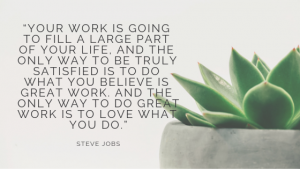
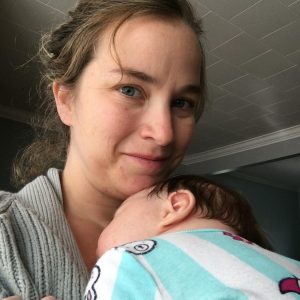 for Doula Canada and the owner of
for Doula Canada and the owner of 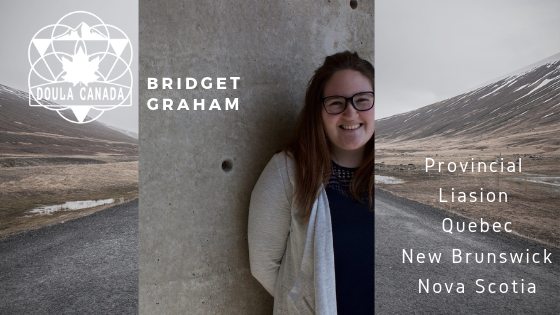

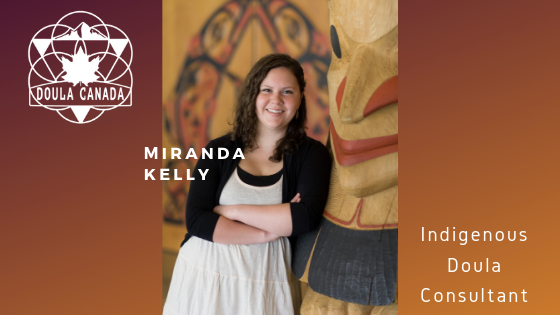
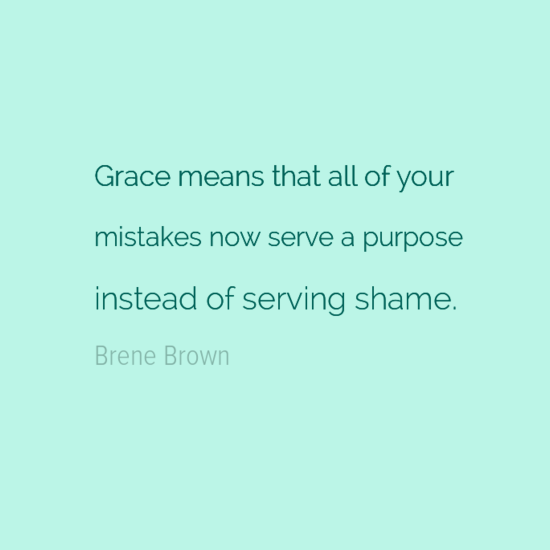
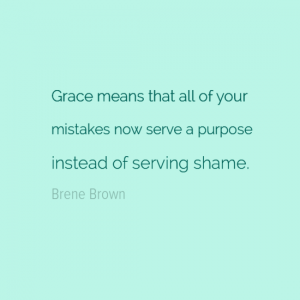 Let’s use an example we can relate to. As a doula, I’m sure we have all experienced moments of shame. If you haven’t yet, you will. Trust me. You wouldn’t be human if you didn’t. My first bout of shame as a doula was with my third client. We had discussed her wishes prior to the birth and I knew she wanted to avoid an episiotomy if at all possible. I supported her to the best of my abilities throughout her labor and when it came time to push. Then, this happened – As she was lying supine, pushing with all her might, I watched the OB pull out a pair of scissors. In my head, I knew I should say something because it was obvious at this point that he didn’t plan to. But I froze – maybe out of fear of confrontation or perhaps I was just too intimidated at that point to question the decisions of a doctor. I’m still not sure why I didn’t speak up for her. But I didn’t; and he cut her without a word.
Let’s use an example we can relate to. As a doula, I’m sure we have all experienced moments of shame. If you haven’t yet, you will. Trust me. You wouldn’t be human if you didn’t. My first bout of shame as a doula was with my third client. We had discussed her wishes prior to the birth and I knew she wanted to avoid an episiotomy if at all possible. I supported her to the best of my abilities throughout her labor and when it came time to push. Then, this happened – As she was lying supine, pushing with all her might, I watched the OB pull out a pair of scissors. In my head, I knew I should say something because it was obvious at this point that he didn’t plan to. But I froze – maybe out of fear of confrontation or perhaps I was just too intimidated at that point to question the decisions of a doctor. I’m still not sure why I didn’t speak up for her. But I didn’t; and he cut her without a word.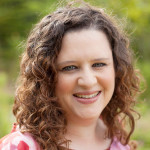
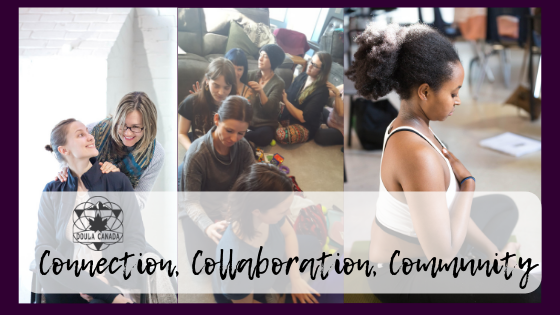

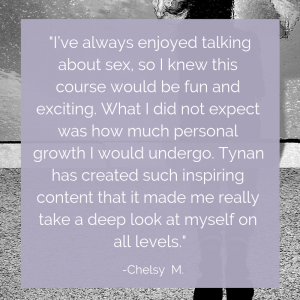 hat’s as important as knowledge, is also self-reflection. Has someone ever told you about a food they love to eat that made you want to gag? More than one of my family members hates chocolate, like, really hates it. Luckily, because most people I know love chocolate at least half as much as I do, I don’t feel ashamed for my love of chocolate when so-and-so closes their eyes and makes a gag sound. Sex is similar and in a very important way also different. Because sex is so taboo, and most of us have felt some kind of judgement or shame for some aspect of our sexuality over the course of our lifetime, it’s all the more important to check-ourselves.
hat’s as important as knowledge, is also self-reflection. Has someone ever told you about a food they love to eat that made you want to gag? More than one of my family members hates chocolate, like, really hates it. Luckily, because most people I know love chocolate at least half as much as I do, I don’t feel ashamed for my love of chocolate when so-and-so closes their eyes and makes a gag sound. Sex is similar and in a very important way also different. Because sex is so taboo, and most of us have felt some kind of judgement or shame for some aspect of our sexuality over the course of our lifetime, it’s all the more important to check-ourselves.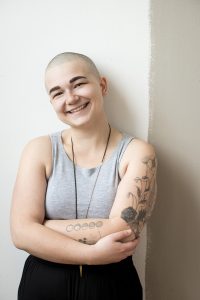 Tynan Rhea is a settler with German and Czechoslovakian ancestry. Tynan has a private practice online and in Toronto as a counselor, aromatherapist, and doula specializing in sex, intimacy, and relationships throughout the reproductive years and founder of PostpartumSex.com. Tynan graduated from the University of Waterloo with a Joint Honours Bachelor of Arts in Psychology and Sexuality, Marriage, & Family. They received their doula training from the Revolutionary Doula Training program and their aromatherapy training with Anarres Apothecary Apprenticeship program. Tynan is currently enrolled at Yorkville University doing their Masters of Arts Counselling Psychology degree. Tynan approaches their practice from sex-positive, trauma-informed, anti-oppressive, and feminist frameworks. Find Tynan on
Tynan Rhea is a settler with German and Czechoslovakian ancestry. Tynan has a private practice online and in Toronto as a counselor, aromatherapist, and doula specializing in sex, intimacy, and relationships throughout the reproductive years and founder of PostpartumSex.com. Tynan graduated from the University of Waterloo with a Joint Honours Bachelor of Arts in Psychology and Sexuality, Marriage, & Family. They received their doula training from the Revolutionary Doula Training program and their aromatherapy training with Anarres Apothecary Apprenticeship program. Tynan is currently enrolled at Yorkville University doing their Masters of Arts Counselling Psychology degree. Tynan approaches their practice from sex-positive, trauma-informed, anti-oppressive, and feminist frameworks. Find Tynan on